Remembering Dina
Neither Indians nor Pakistanis quite forgave Dina Wadia for being Muhammad Ali Jinnah’s daughter
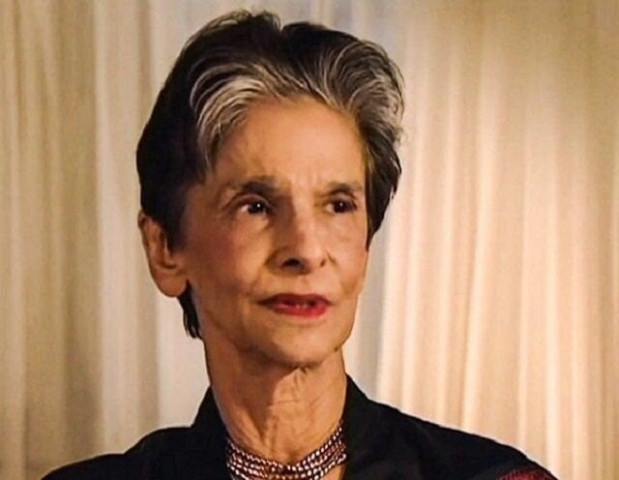
Dina Wadia. PHOTO:FILE
As I set out in the 1990s to complete the Jinnah Quartet, consisting of two films and two books on Jinnah, I knew I had to interview Jinnah’s only child in order to confirm some facts of Jinnah’s life and obtain a sense of the man through the daughter. Thanks to some friends and Dina’s son Nusli, a thorough gentleman, I was fortunate to have had several telephonic conversations and meetings with Dina in the late 1990s in New York and succeeded in getting her to agree to be interviewed for the documentary film Mr Jinnah — the Making of Pakistan.
In this article, I will share her own words on a number of topics from quotes and passages which are excerpted from the documentary and the book Jinnah, Pakistan and Islamic Identity — The Search for Saladin. Those interested will find the film online and the book published by Oxford University Press.
Meeting Dina
I found Dina at first somewhat brusque in manner, cold and distant, but she warmed up as our conversations continued and by the end I found her charming, intelligent, sharp and affable. She was overjoyed to receive the beautiful Swati embroidered shawl and shalwar-kameez set my wife had sent for her and asked me to thank her several times.
She had agreed to come out for tea with me to a restaurant that she had chosen. As the two of us talked, I felt profoundly humbled and honoured to be with her and to be able to glimpse her father who I admired so much. In her style of speaking and mannerism, assertive and clipped, sharp features, light complexion and fastidious dressing she bore a striking resemblance to her father. My sense was of a naturally shy person who valued her privacy and deliberately kept away from India-Pakistan issues. She avoided the media like the plague.
Dina on her father
[On Jinnah growing up]: “He grew up and, it would be 16, then he wanted to go to England. He came from a very well-off family and they were merchants and he didn’t want for anything. His father decided it perhaps he should send his son to England for further education. He wanted to go but his mother was not very happy. She was very upset.”
[On Jinnah being asked by his father to come home and support the foundering family business]: “And he said no, he didn’t want to go back. He wanted to finish everything and finish his education and so on. And he did.”
[On Jinnah and the relationship with Gandhi]: “When Gandhi came from South Africa, my father was already an established politician. I think the original thing that was in common was how to get the British out — you know, how to get India independent.”
[On Jinnah’s religiosity]: “He was not a religious man, but he wasn’t irreligious either. There was no big religious thing.”
[On Jinnah and his view of the two communities]: “If Muslims got ten rupees they would buy a pretty scarf and eat biryani whereas Hindus would save the money.”
[On life in London]: She recalled that in the early 1930s Jinnah lived in a large house in Hampstead, London, had an English chauffeur who drove his Bentley and an English staff to serve him. There were two cooks, Indian and Irish, and Jinnah’s favourite food was curry and rice. He enjoyed playing billiards. She remembers her father taking her to the theatre, pantomimes and circuses.
[On Jinnah’s reaction to her marriage to a non-Muslim]: “He wasn’t too happy because I think it was that crucial time all around. He was very disapproving, and we didn’t speak for a few years.”
[On attempted assassination on Jinnah]: “He fought off the man. What happened was that this man came with a knife, and my father was struggling with him, and so the knife cut him. His chauffeur, his driver was in the driveway in a van, and he was a big Pathan, and he just cut him off.”
[On Jinnah’s decision to split from India]: “He never really wanted to break away. He thought everybody could live together and come to terms with the Congress party or the Hindu government or whoever was going to be in charge. And, as history tells us, it wasn’t to be.”
[On learning about the creation of Pakistan]: “I was in Bombay at my house, and he phoned and he said, ‘We’ve got it.’ I said, ‘Got what?’ and he said ‘Pakistan.’ I said, ‘Well you’ve worked hard for it.’ And then we had a personal conversation and that was it…I never saw him again because he was in Pakistan.”
[On Jinnah’s funeral — Dina’s first visit to Pakistan]: “Oh, it was massive. I’ve never heard so many people cry — I mean most, but in the mourning and crying and flowers, there were thousands and thousands of lakhs of people, but that was to be expected. Remember that Pakistan had only been going for a year or something, so it was very emotional.”
[On relations with her father]: Father and daughter had fallen out when Dina announced that she planned to marry Neville Wadia, a Christian who had once been a Parsi. At the time, Jinnah had just become the leader of Muslims of India and was therefore highly conscious of his role. In an angry exchange between father and daughter, Jinnah told her that there were millions of Muslim boys in India, and she could have anyone she chose. She replied that there were millions of Muslim girls and he could have married one of them, so why did he marry her mother? Inevitably there was a break in relations. Dina married Neville Wadia in 1938 and they had a daughter and son, but the couple separated a few years after partition.
Jinnah’s relationship with his daughter is widely misunderstood. He is depicted as a cold and unfeeling father who ordered his daughter out of his house because she married against his will and he never spoke to his daughter after she married. This information is incorrect. Dina confirmed to me that when she heard her father had almost been assassinated in 1943 she telephoned to ask if he was safe and said she would like to see him. “Of course,” he replied. Immediately she rushed over to his house.
There is written evidence of the affection between Dina and her father in the last years of Jinnah’s life. A letter uncovered a few decades ago sent by Dina from Bombay to her father on hearing the news about Pakistan on 28 April 1947 reads:
My darling Papa, First of all I must congratulate you — we have got Pakistan….how hard you have worked for it…I do hope you are keeping well — I get lots of news of you from the newspapers. The children are just recovering from their whooping cough, it will take another month yet. I am taking them to Juhu on Thursday for a month or so. Are you coming back here? If so I hope you will drive out to Juhu and spend the day if you like. Anyway I have a phone so I will ring you up and drive in to see you if you don’t feel like coming out. Take care of yourself Papa darling. Lots of love & kisses, Dina
(To be concluded in the November 8 edition)
Published in The Express Tribune, November 7th, 2017.
Like Opinion & Editorial on Facebook, follow @ETOpEd on Twitter to receive all updates on all our daily pieces.


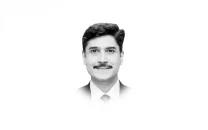


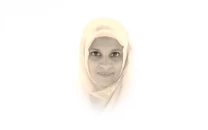
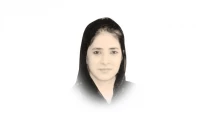





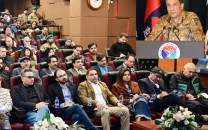





COMMENTS
Comments are moderated and generally will be posted if they are on-topic and not abusive.
For more information, please see our Comments FAQ